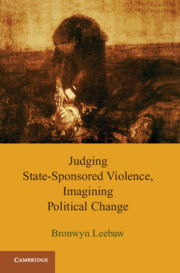Book contents
- Frontmatter
- Contents
- Acknowledgments
- 1 Introduction: Transitional Justice and the “Gray Zone”
- 2 Human Rights Legalism and the Legacy of Nuremberg
- 3 A Different Kind of Justice: South Africa's Alternative to Legalism
- 4 Political Judgment and Transitional Justice: Actors and Spectators
- 5 Rethinking Restorative Justice
- 6 Remembering Resistance
- 7 Conclusion: The Shadows of the Past
- Select Bibliography
- Index
- References
1 - Introduction: Transitional Justice and the “Gray Zone”
Published online by Cambridge University Press: 05 June 2012
- Frontmatter
- Contents
- Acknowledgments
- 1 Introduction: Transitional Justice and the “Gray Zone”
- 2 Human Rights Legalism and the Legacy of Nuremberg
- 3 A Different Kind of Justice: South Africa's Alternative to Legalism
- 4 Political Judgment and Transitional Justice: Actors and Spectators
- 5 Rethinking Restorative Justice
- 6 Remembering Resistance
- 7 Conclusion: The Shadows of the Past
- Select Bibliography
- Index
- References
Summary
A torturer informs a prisoner that no matter how loud she screams no one will ever hear her cries. Perceived enemies of the state are “disappeared,” buried in mass graves, and forgotten. Episodes of repression, atrocity, and political violence are customarily downplayed or avoided in the history lessons that are taught to schoolchildren. Hannah Arendt characterized such strategies as efforts to establish “holes of oblivion into which all deeds, good and evil, would disappear.” She added that these efforts would never be entirely successful because “one person will always be left alive to tell the story.”
In recent decades, institutions designed to recover such stories, and to challenge efforts to consign evidence of past atrocities to “holes of oblivion,” have proliferated to numerous countries around the world. International war crimes tribunals have hired forensic scientists to reconstruct the stories that are told by the bones found in the mass graves of Bosnia-Herzegovina and Rwanda. An International Criminal Court has been developed to hold individuals accountable for egregious violations of human rights and humanitarian law. Truth commissions have been created in more than thirty-five countries to investigate patterns of political violence and abuses. These institutions have sent teams of investigators to the remote regions of Peru, the townships of South Africa, and the villages of East Timor and Sierra Leone to take testimony from survivors of political violence. They have compelled people who are responsible for torture, mass rape, “ethnic cleansing,” and genocide to come forward with evidence and confessions.
- Type
- Chapter
- Information
- Publisher: Cambridge University PressPrint publication year: 2011



